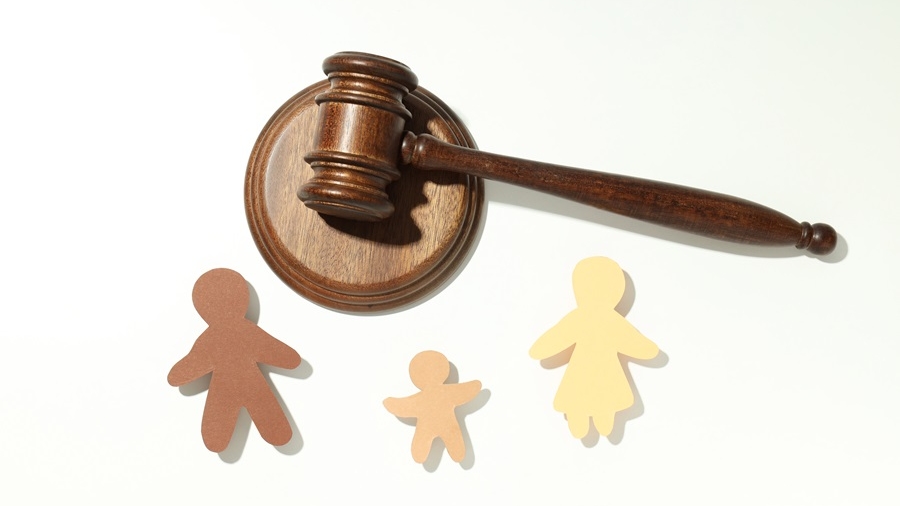Lawyer for Child Custody
Table of Contents
ToggleChild custody choices are among the most critical areas of family law, and for parents in California, understanding the complexity of joint and sole custody agreements may be particularly difficult. In this thorough guide, we’ll dig into the legal ramifications of joint custody and sole custody in California, examining the variables that impact these decisions, the rights and obligations connected with each, and the considerations that courts consider.
A legal battle with a family member may be difficult and stressful, especially when little children are involved. If you are fighting for child support, you need a lawyer for child custody in Upland, CA, which you can rely on. The Law Office of Stephen Gassner, APC, can assist you in effectively resolving your child custody case and will work hard to win your case.
Need Advice from a Child Custody Attorney in Upland, CA? Call the Law Office of Stephen Gassner
What Is Joint Custody?
Joint or shared custody is a legal arrangement that allows parents to work together after a divorce. California family courts recognize the importance of both parents raising their children. The state offers two types of joint custody, each addressing a particular parental role and commitment.
1. Joint Legal Custody
Parents can make child-related decisions with joint legal custody. Educational, healthcare, and religious upbringing decisions are examples. Joint legal custody involves shared responsibility for major life decisions affecting the child. Both parents make important decisions about the child’s well-being and development, even if the youngster lives with one parent.
2. Joint Physical Custody
Joint physical custody includes the child’s living circumstances and time with each parent. A combined plan might ensure the youngster gets regular and continuing contact with both parents, not 50/50. Joint physical custody aims to design a timetable that fulfills the child’s requirements and involves both parents. This schedule may vary depending on the child’s needs.
Whether joint legal custody, joint physical custody, or a combination of both, the goal is to provide a supportive and caring environment that lets the child grow while maintaining meaningful links with both parents.

Factors Affecting Joint Custody in California
When deciding on joint custody, the court considers several factors, including the child’s welfare, the parents’ capacity, and the family’s dynamics.
Cooperation
Courts in California emphasize parents’ ability to work together for their children. A willingness to cooperate on child raising, education, health, and well-being is valued. Cooperation helps children develop good emotions by reducing conflict.
Parental Household Stability
In custody decisions, each parent’s home and stability matter. Courts assess the child’s living circumstances and their impact on adjustment and development. For the child, courts may consider each parent’s home’s cleanliness, safety, and suitability.
Child-Parent Relationship
The court examines the child’s emotional relationships with each parent. This factor helps measure the child’s bonds and predict their ability to maintain positive connections.
Safety/Health
Parents’ emotional and physical health is carefully managed to ensure the child’s safety, well-being, and development. The court also evaluates their mental and physical health to ensure each parent can satisfy the child’s requirements. Considerations include substance misuse, mental health issues, and concerns about the parent’s ability to provide security.
It is best to talk to a trusted Child Custody Attorney in your area to learn more about joint custody.

Understanding Sole Custody
Sole custody is a significant legal arrangement that identifies one parent as the primary caretaker with sole legal and physical rights and obligations for the kid.
1. Sole Legal Custody
Sole legal custody gives one parent complete control over the child’s upbringing. It includes vital life decisions impacting the child’s development, such as school, healthcare, and religious upbringing.
The parent with sole legal custody makes all decisions affecting the child’s life. Though they have visiting privileges, the noncustodial parent has no say in crucial decisions.
2. Sole Physical Custody
Sole physical custody entails the kid generally staying with one parent and having visitation rights with the other. Contrary to widely held belief, sole physical custody does not imply that the noncustodial parent has no contact with the kid; instead, they spend less time with the child than under a shared physical custody arrangement.
The custodial parent manages the child’s daily life. The noncustodial parent may have court-ordered visiting privileges. It provides a stable and constant living environment for the kid, mainly when the parents are apart. It also allows the custodial parent to create routines and continuity for the child’s upbringing.
Factors Influencing Sole Custody Decisions
When considering custody arrangements, courts carefully assess any history of abuse or neglect, putting the child’s safety and well-being first.
Stability and Consistency
The stability and consistency of the custodial parent’s household are critical in assessing if sole custody is in the best interests of the kid.
Willingness to Promote the Relationship
The court looks at the custodial parent’s desire to develop and support the kid’s relationship with the noncustodial parent to ensure that the youngster retains contact with both parents.
Preference of the Child
Depending on maturity and age, the court may consider the child’s preference when choosing sole custody arrangements.
Understanding the ramifications of each form of sole custody and the reasons that impact these decisions is critical for parents navigating California’s legal terrain of family court. It emphasizes creating a secure and supportive environment for the kid, even when one parent has primary custody.
Navigating the complexity of joint vs. sole custody in California needs a thorough awareness of the legal implications and a calculated strategy. Remember that every situation is different, and working cooperatively with legal professionals helps guarantee a more seamless transition for parents and children during the complex process of deciding child custody.
How to Navigate Child Custody Disputes in California
Custody battles may be emotionally charged, so it’s critical to approach them thoroughly and be aware of California’s legal environment. Follow these steps to negotiate custody disputes efficiently:
Seek Legal Advice
Speak with an expert family law attorney specializing in California child custody matters. They can give specialized guidance depending on your case. Talk to a certified lawyer for child custody, like the Law Office of Stephen Gassner. He has over 27 years of experience as a licensed attorney and has handled several child custody cases.
Understand Your Rights
It is essential to know your parental rights and responsibilities. Understanding the elements of determining custody choices in California will allow you to make more educated judgments.
Conflict Resolution
California courts frequently encourage parents to use mediation or other conflict resolution procedures before resorting to litigation. These tactics may result in more agreeable settlements and be the best option for the children involved. Get help from a lawyer for child custody to help you find the best solution for your case.
Document Your Case
Keep thorough notes of contacts with the other parent, pertinent correspondence, and any situations that may influence the child’s well-being. Documentation can be used as evidence in court.
Focus on the Child’s Best Interests
Regardless of the custody arrangement, courts emphasize the child’s best interests. Demonstrating your dedication to creating a healthy and suitable environment for the child is critical. The Law Office of Stephen Gassner has the knowledge and experience you need to get the best outcome for your case and your child.
Frequently Asked Questions
Why Do I Need an Attorney to Represent Me in Child Custody Proceedings?
You need an attorney because child custody disputes can be quite complex, and a lawyer for child custody can advise your legal choices, walk you through the legal process, and fight for your rights.
How Do You Find the Right Child Custody Attorney?
You can find the right child custody attorney by asking friends, relatives, or coworkers for suggestions. Also helpful are bar associations, legal directories, and internet reviews. Consult a few lawyers to pick one whose experience and approach match your requirements.
What Considerations Are Considered by Courts in Child Custody Cases?
The considerations the court will evaluate are the child’s best interests, the parent’s ability to maintain a stable family, the parent’s relationship with the child, and any history of domestic violence or substance abuse, among other things.

Family Law Attorney in Upland, CA
Child custody is a challenging case to manage. But the people of California have a trusted lawyer for child custody: Stephen Gassner. The Law Office of Stephen Gassner has more than two decades of experience in the legal world and is committed to protecting your legal rights.
The Law Office of Stephen Gassner also offers legal services on Divorce, Paternity, Child Support, Spousal Support, Property Division, and International matters.
Law Office of Stephen Gassner
324 N Mountain Ave, Upland, CA 91786, United States
(909) 937-7000

Mr. Gassner is a Certified Family Law Specialist, certified by the California State Bar Board of Legal Specialization. He is also a member of the Association of Certified Family Law Specialists and a member of the California Lawyers Association Family Law Section.


